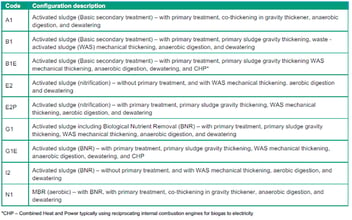Tackling wastewater emissions: collaborative research to improve sanitation in Indonesia

Addressing wastewater emissions is vital for combating climate change and achieving sustainability goals. A new international research partnership is aiming to produce new insights, shape policies to reduce emissions and improve public health outcomes.
Researchers at the University of Technology Sydney’s Institute of Sustainable Futures have been engaged by the Indonesia Australia Partnership for Infrastructure, funded by the Australian Government, to measure wastewater emissions from sanitation in Indonesia.
The research will be undertaken in collaboration with the Directorate of Sanitation in the Indonesian Government’s Ministry of Public Works and Housing, together with other partners including the University of Indonesia and the University of Leeds.
UTS Professor Juliet Willetts said the purpose of the research is to help bridge the current evidence gap present in understanding emissions from key sanitation technologies in Indonesia.
“There is a significant evidence gap around emissions from the types of sanitation systems you find in countries such as Indonesia, especially in tropical climates with wet and dry regions,” she said.
“About 80% of the population uses some form of on-site sanitation, and there are also community-scale systems in low-income urban areas. There’s a smaller portion served by centralised technologies.
"At the global level, greenhouse gas inventories are based on methodologies from the Intergovernmental Panel on Climate Change, which use assumptions mostly taken from high-income countries. These don’t necessarily apply to every country."
In 2022, a study conducted in Kampala, Uganda, estimated that almost 50% of the city’s greenhouse gas emissions are from sanitation, Willetts said.
“The significant evidence gap is problematic. It prevents us from minimising emissions, and the sanitation sector is far off track in terms of sustainable development goals (SDGs)," she said.
"At World Water Week in Stockholm this year, we discussed progress against SDG target 6.3.1, which is about wastewater. The global data isn’t even sufficient to provide a global estimate of progress and for SDG Target 6.2 in low and middle-income countries, since services aren’t keeping pace with population growth.
“When we arrive at 2030, we may be further behind than when we started.
"We need more attention and investment in the sanitation and wastewater sector. Understanding greenhouse gases has potential to mobilise additional finance for the sector and draw attention to the bigger problem of managing human waste in urban and rural areas."
Focus on wastewater
Willetts said the long-term goal of the research project is to minimise the Indonesian wastewater sector’s greenhouse gas emissions through improved awareness and understanding, and more effective management of sanitation services. In particular, it is about finding synergies between climate resilience and emissions reduction.
"The focus needs to be on pathways to achieve safely managed sanitation, including in the context of climate change, which poses new risks to services, and hence understanding emissions profiles of different technologies and processes under different conditions will be key,” she said.
“The public health imperative is critical, and it is likely that unmanaged human waste in drains will demonstrate significant emissions, so addressing this issue is win-win – for climate change and for health outcomes.
"Better understanding of emissions could also open up the door to new forms of finance for the sanitation sector, including climate finance."
Within the international development context, Willetts said sanitation and wastewater are often overlooked in comparison to drinking water provision.
“People tend to focus more on safe drinking water, which is, of course, critical. But treatment of domestic and industrial wastewater tend to be overlooked, even though they are just as crucial, and in fact can undermine quality of available water for water supply systems,” she said.
Mutual learning
The research will be considering centralised, decentralised and onsite wastewater technologies, but will also be looking at unmanaged waste – the waste that doesn’t make it into any sanitation system.
“We’ll measure emissions from untreated wastewater and greywater that ends up in drains. But once it hits a waterway and mixes with other water sources, it becomes harder to quantify its emissions,” Willetts said.
"We’ll follow sludge and biosolids through the treatment system, but again, there’s a limit to what we can measure once this is applied to land. It’s a methodological boundary rather than an intentional one."
Importantly, the research project is centred around mutual learning in all directions, facilitated by working groups and a series of sessions throughout the project where teams from different countries collaborate and learn from each other.
"Mutual learning is central to this project. We did an internal survey to match up people’s interests, aspirations and expertise, and we’ve designed training sessions that are mixed – not divided by country. Everyone contributes, regardless of their location,” Willetts said.
"It’s about building knowledge together and making sure the learning goes in all directions. It’s really exciting to see how enthusiastic everyone is about contributing. It bodes well for the project."
Partnering for success
The research project is funded through the Indonesia Australia Partnership for Infrastructure, which is built on long-term relationships between the implementing partners.
“We’ve been working with both our Indonesian partners for over 10 years. Universitas Indonesia Department of Environmental Engineering provides technical expertise, while the Centre for Regulation, Policy and Governance focuses on legal and regulatory aspects,” Willetts said.
“Both partners bring invaluable local knowledge, technical and governance expertise. In addition, the University of Leeds has technical expertise in measuring emissions from onsite sanitation systems, and UNSW brings critical knowledge on centralised systems, particularly nitrous oxide emissions, building from research on wastewater systems in the Australian context.
"Our Indonesian partners bring the strength of understanding their own sanitation systems, policies and governance context, and will lead on government stakeholder engagement processes. This exchange is crucial for the success of the project."
Willetts said an important objective of the project is policy engagement as well as technical guidance: “We don’t just want to collect data. We need to involve government stakeholders in understanding the research, shaping the decisions, and taking ownership of the findings. The Ministry of Public Works and Housing have also shared their interest in technical guidance and guidelines as outputs from the project”.
"It’s important to move beyond research and ensure that government and local stakeholders are involved throughout, if we want to realise the project ambition to improve sanitation in Indonesia and elsewhere,” she said.
Professor Juliet Willetts recently won the International Water Association’s Gender Diversity and Water Award at the 2024 World Water Congress in Toronto this year. This award recognises Juliet’s outstanding professional contribution to the advancement of inclusive water and sanitation services in Asia and the Pacific and at the global level.
The Indonesia Australia Partnership for Infrastructure (or Kemitraan Indonesia Australia untuk Infrastruktur – KIAT) is a partnership between the Government of Australia and Government of Indonesia to support sustainable and inclusive economic growth through improved access to infrastructure for all people in Indonesia. KIAT works with government partners, multilateral development banks and civil society, providing technical assistance to improve infrastructure policy, planning and delivery.


